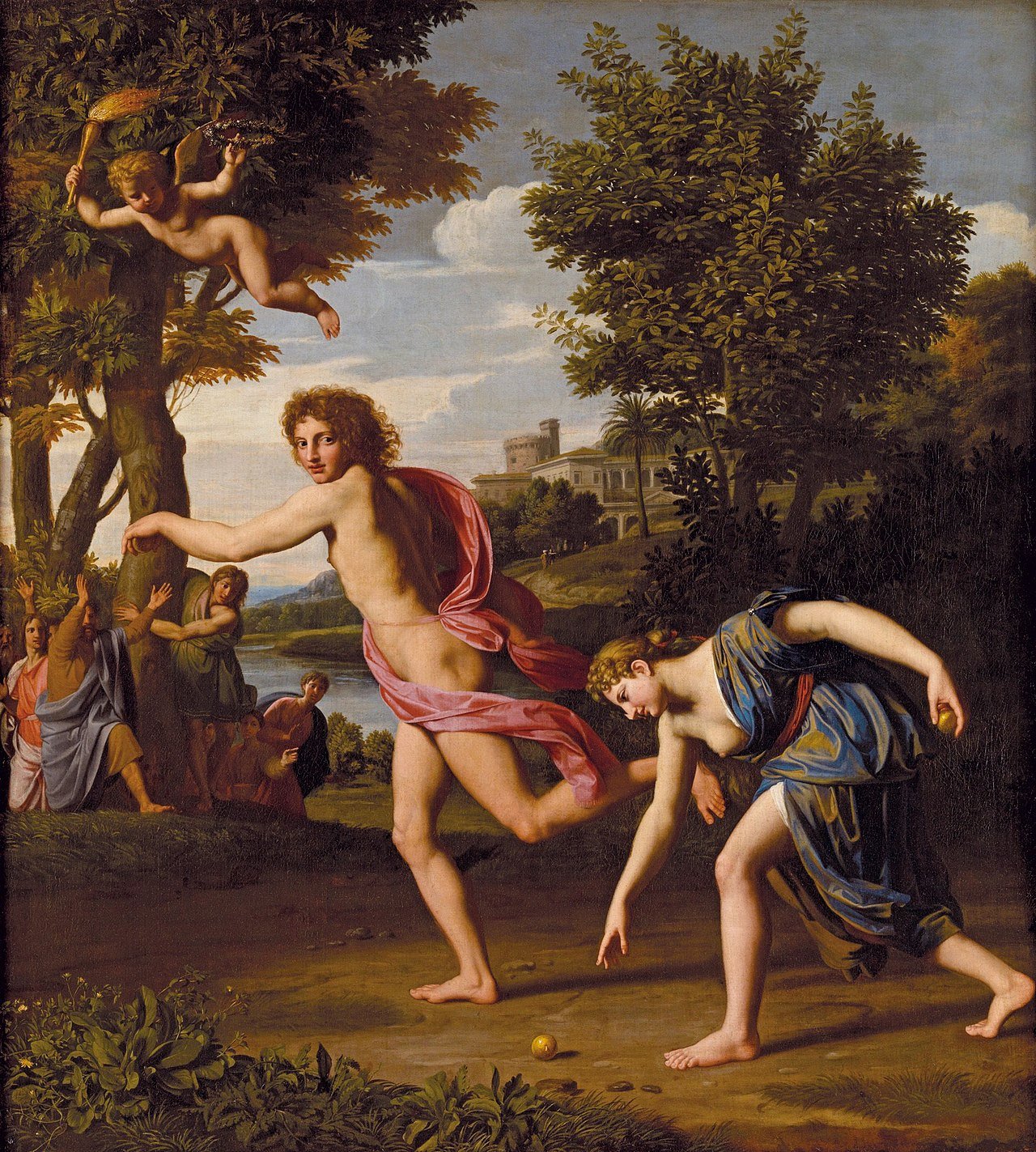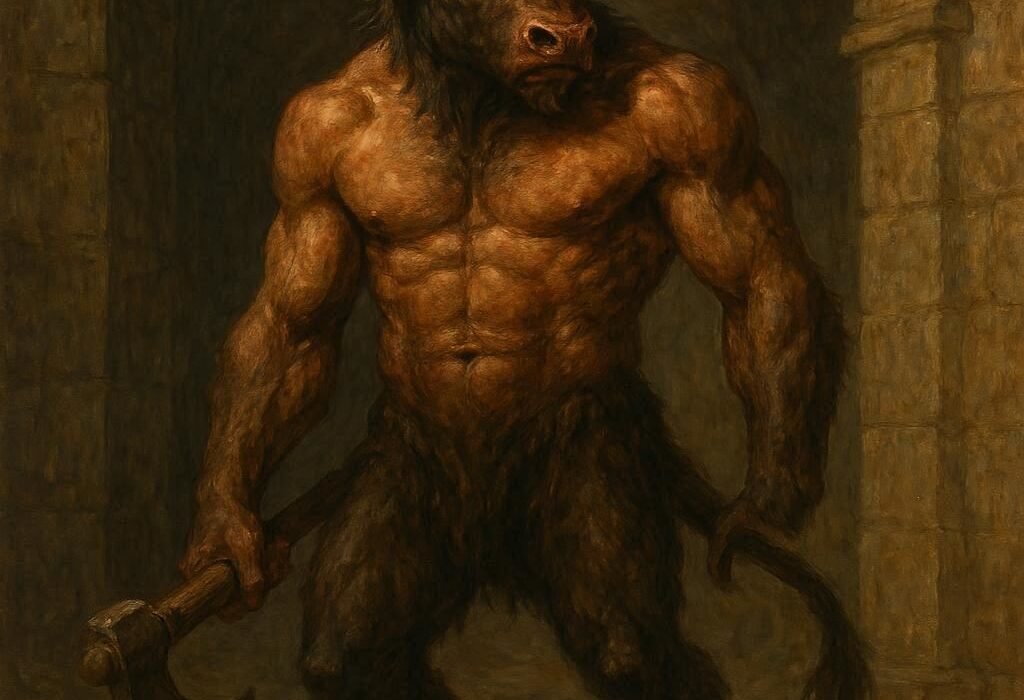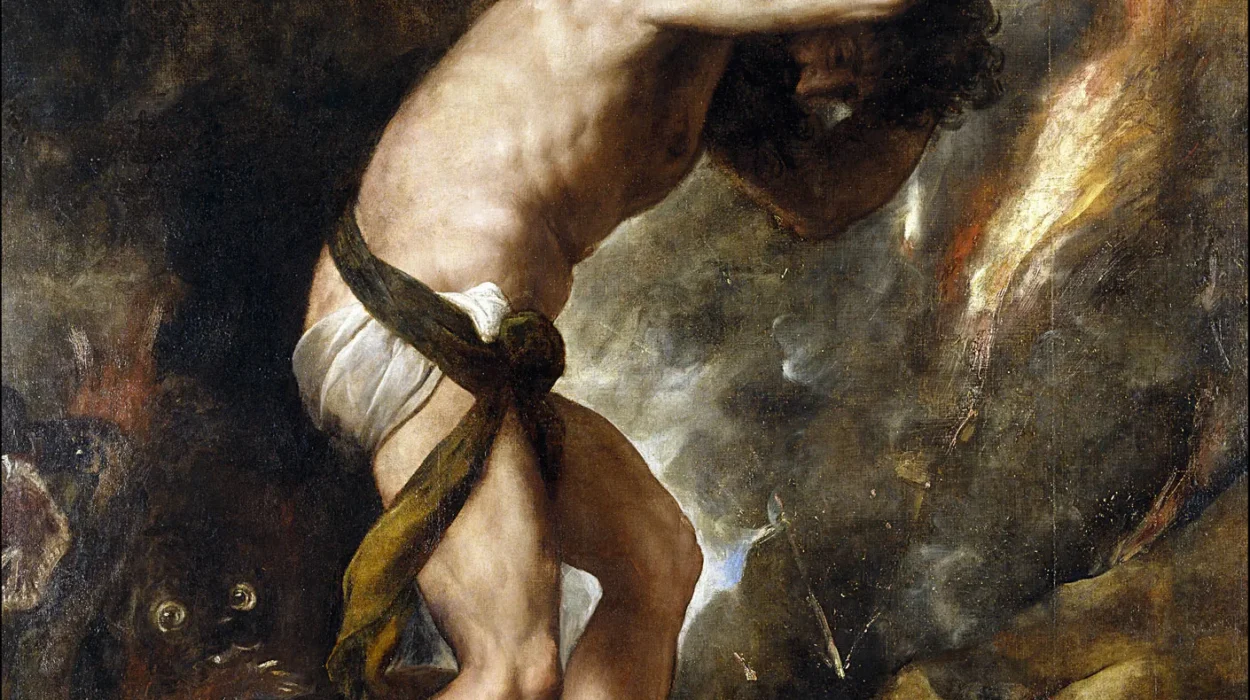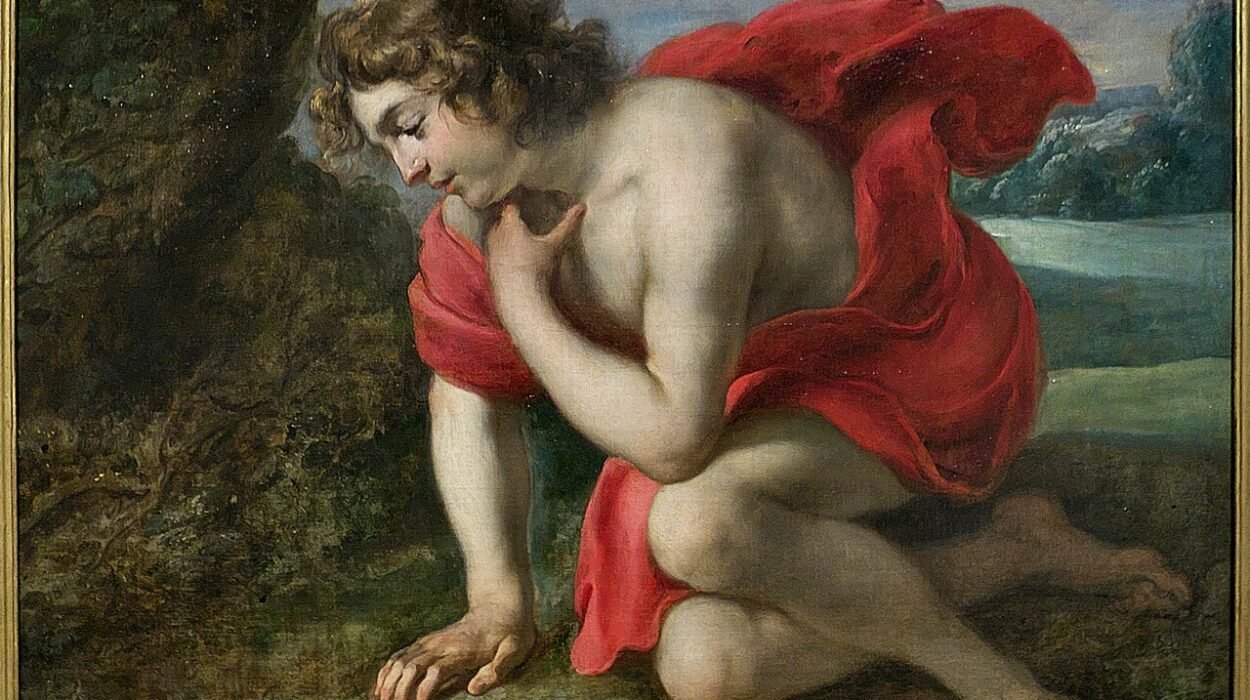Among the endless constellation of figures that populate Greek mythology—heroes who slay monsters, gods who command the skies, and mortals who defy fate—few shine with the same wild brilliance as Atalanta. She was a woman unlike any other in the myths of Greece: a huntress swifter than any mortal, a warrior equal to men, and a figure who lived on her own terms in a world that rarely allowed women such freedom. Atalanta was both a myth and a message, a reminder that the boundaries of courage, strength, and destiny could not be confined to one gender.
Her story is as fascinating as it is fragmented, for Atalanta does not belong to a single myth but to many. She appears in the cycle of heroes, in the hunt for the Calydonian Boar, in the tales of the Argonauts, and in the unforgettable race that decided her fate. She is a figure who runs—always running, always escaping, always chasing—and in that motion, she becomes one of mythology’s most compelling symbols of independence and tragedy.
The Birth of an Abandoned Child
Atalanta’s story begins with abandonment. According to most traditions, she was the daughter of a king, though her parentage varies depending on the source. Some claim her father was King Iasus of Arcadia; others name Schoeneus of Boeotia. Whoever her father was, he shared a common flaw of kings in myth: the desire for a son. When Atalanta was born a girl, she was rejected and cast out. In some versions, she was left on a mountainside to die, a fate that was not uncommon for unwanted children in the ancient world.
But the gods—or perhaps destiny itself—intervened. Atalanta did not perish. Instead, a mother bear, sent by the goddess Artemis, found the infant and nursed her. This image—the tiny child sustained by the wild—captures the essence of Atalanta’s life. She was not raised within the walls of a palace, nor taught to weave and marry as other princesses were. She grew among the beasts, nourished by the wilderness, and shaped by Artemis, goddess of the hunt, virgin protector, and fierce defender of women.
Later, hunters discovered her and took her in, raising her as one of their own. But Atalanta never forgot the wilderness that had saved her. She belonged to Artemis, to the forest, and to freedom.
The Huntress Devoted to Artemis
From her earliest years, Atalanta set herself apart from ordinary mortal women. She vowed to remain a virgin and dedicate her life to Artemis. She refused the weaving of wool and the duties of the hearth, choosing instead the bow, the spear, and the swift pursuit of game. She was the archetype of the virgin huntress, resembling the goddess she served, yet distinct in her mortality.
Her skill with the bow was unmatched, her speed legendary. No man could outrun her, and few dared to challenge her in archery or wrestling. In a culture where women were confined to domestic spheres, Atalanta shattered expectations simply by living. She did not seek permission to hunt or fight—she simply did it, and in doing so, she carved her place into myth.
The Calydonian Boar Hunt
Atalanta’s fame reached its peak in the story of the Calydonian Boar Hunt, one of the most celebrated myths of ancient Greece. King Oeneus of Calydon had failed to honor Artemis in his offerings, and the goddess, enraged, sent a monstrous boar to devastate his lands. This beast was no ordinary animal but a creature of divine wrath—massive, destructive, and unstoppable.
To slay the boar, Oeneus called upon the greatest heroes of Greece. Meleager, son of Oeneus, gathered the hunters, and among them were figures who would later sail with Jason: heroes such as Theseus, Castor, and Pollux. Yet the most remarkable of the company was Atalanta, the only woman among them.
When she arrived, clad in hunting gear, bow at her side, many of the men scoffed. How could a woman hope to join such a hunt? But Meleager, captivated by her beauty and impressed by her reputation, defended her right to participate. Some say he loved her from the moment he saw her.
The hunt was fierce. Spears flew, hounds bayed, heroes fell. But it was Atalanta who first drew blood. With her arrow, she struck the boar, wounding it and slowing its charge. Meleager then delivered the killing blow, but he awarded the spoils—the boar’s hide and tusks—to Atalanta, honoring her as the true victor.
This decision enraged Meleager’s uncles, who believed a woman had no right to such a prize. Insults were exchanged, violence erupted, and in the end, Meleager killed his own kin to defend Atalanta’s honor. Tragedy followed swiftly. Meleager’s mother, furious at the deaths of her brothers, cast the fatal brand into the fire that ended her son’s life.
Thus, Atalanta’s role in the boar hunt revealed both her glory and the danger she posed to patriarchal order. Her triumph was undeniable, but it left a trail of blood and conflict behind.
Atalanta Among the Argonauts
In some traditions, Atalanta also joined Jason and the Argonauts on their quest for the Golden Fleece. Though not all ancient sources agree on this, later writers included her as part of the crew. Her presence among the Argonauts further emphasized her uniqueness—a woman standing among Greece’s greatest male heroes, her bow and speed as valuable as their swords and strength.
While her role in the voyage is not always elaborated, her very inclusion symbolized the recognition of her prowess. She was no longer just a huntress in the wild; she was a hero who belonged among the greatest adventurers of myth.
The Race for Marriage
Perhaps the most famous part of Atalanta’s story is the race that determined her marriage. Despite her vow of virginity, her father—whether Iasus or Schoeneus—pressed her to wed. Atalanta, unwilling to surrender her independence, devised a challenge: she would only marry a man who could defeat her in a footrace. Those who lost would be executed.
The stakes were high, but suitors came nonetheless, drawn by her beauty and fame. One by one, they ran—and one by one, they died. None could match her speed, for Atalanta was swifter than the wind.
Then came Hippomenes (also called Melanion in some versions). Unlike the others, he sought not just his own strength but divine aid. He prayed to Aphrodite, goddess of love, who gave him three golden apples. These apples were not ordinary fruit but irresistible distractions.
As the race began, Hippomenes knew he could not outrun Atalanta. Instead, he used the apples. When Atalanta surged ahead, he tossed one of the golden fruits to the side. Atalanta, curious and enchanted, slowed to pick it up. Again and again, Hippomenes repeated the trick, each time stealing a little more distance. At last, with the final apple, he secured enough of a lead to cross the finish line first.
Bound by her own vow, Atalanta was forced to marry him. In this tale lies both triumph and tragedy: Atalanta’s unmatched independence undone not by strength but by cunning, by beauty, by the very goddess who opposed Artemis’s virgin ideal.
Transformation and Fate
The marriage of Atalanta and Hippomenes did not end in harmony. In some versions, they were consumed by passion in a sacred temple—either of Zeus or of Cybele—and the gods, enraged by their disrespect, transformed them into lions. In Greek myth, lions were not thought to mate with one another but only with leopards, and so the transformation symbolized the end of their union.
In this ending, Atalanta once again became part of the wilderness, forever bound to the animal world that had nurtured her. Her fate was tragic, yet it preserved the essence of her story: a woman who was never fully domesticated, never entirely claimed by human society, and always, in some way, untamed.
Symbolism of Atalanta
Atalanta’s myth resonates on many levels. She is a symbol of female independence, a figure who refused to live within the narrow confines of patriarchal expectation. She is a celebration of athleticism, of the body’s strength and grace. She is also a reminder of the dangers that accompany defiance, for her victories often provoked male rage and divine intervention.
Atalanta embodies the tension between Artemis and Aphrodite, between the wilderness and love, between freedom and union. She is at once the huntress who kills and the maiden who is captured, the virgin devoted to Artemis and the bride forced into Aphrodite’s sphere. This duality makes her one of the most complex and human figures in Greek mythology.
Atalanta in Ancient and Modern Culture
In the ancient world, Atalanta’s story was told and retold in art, poetry, and vase painting. She was an inspiration to athletes, particularly women, for she demonstrated that speed, strength, and courage were not the sole domain of men.
In modern times, she continues to inspire. Feminist interpretations reclaim her as a symbol of resistance against patriarchal structures. Athletes and writers alike celebrate her as a figure who embodies the joy of physical excellence and the freedom of self-determination.
Her image runs through literature, theater, and even modern media. She is the eternal huntress, the woman who outruns expectations, and the hero who reminds us that myths are not only about gods and kings but also about those who dared to live differently.
The Enduring Legacy of the Swift Huntress
Atalanta’s story is one of paradox: independence and captivity, triumph and tragedy, wilderness and civilization. She is a hero who stands alongside the greatest men of myth, yet her tale also reveals the struggles of women in a world that often sought to silence them.
She remains immortal not because of her fate, but because of her defiance. In every race, in every arrow she loosed, in every stride through the forest, Atalanta carried the spirit of freedom. She was a woman who refused to be what others demanded, who carved her own destiny, even when the gods themselves sought to reshape it.
In the end, Atalanta is more than a myth. She is a vision of humanity’s longing for freedom, speed, and selfhood. She is the whisper of the forest, the flash of a deer through the trees, the arrow that flies true. She is the swift huntress who still runs, endlessly, through the timeless fields of imagination.






